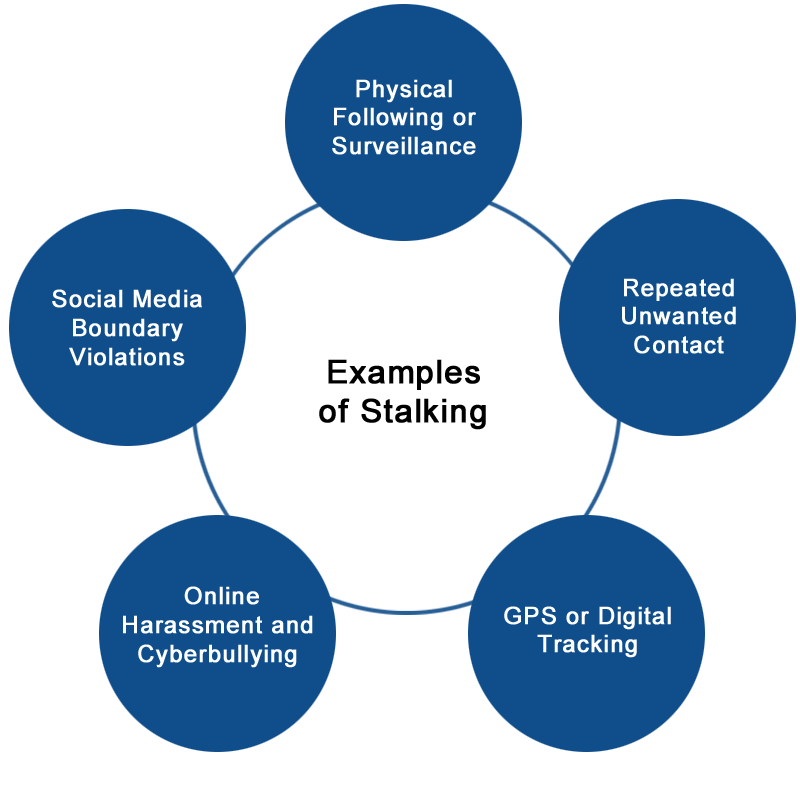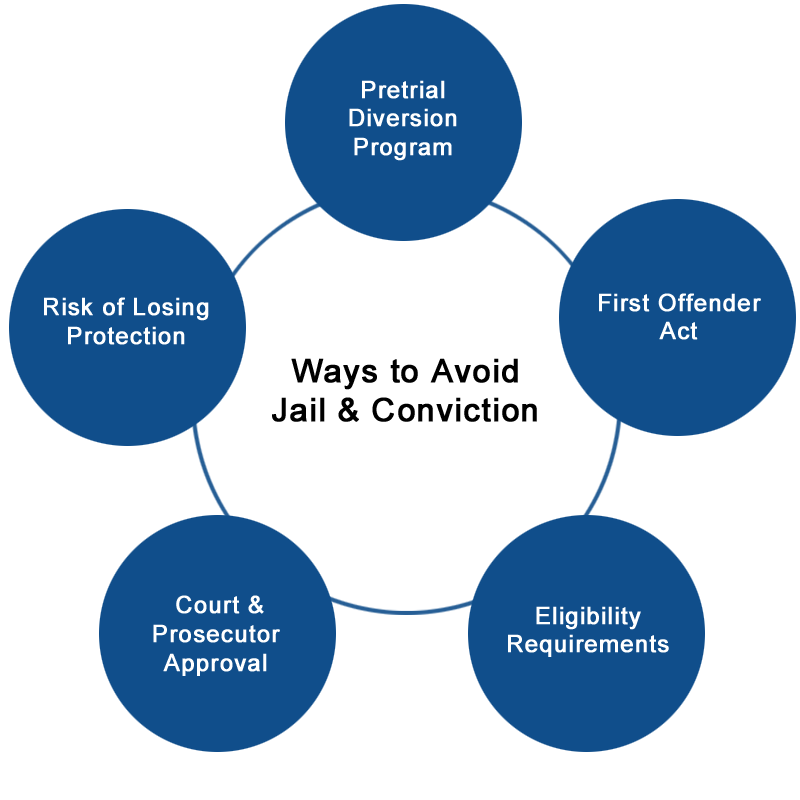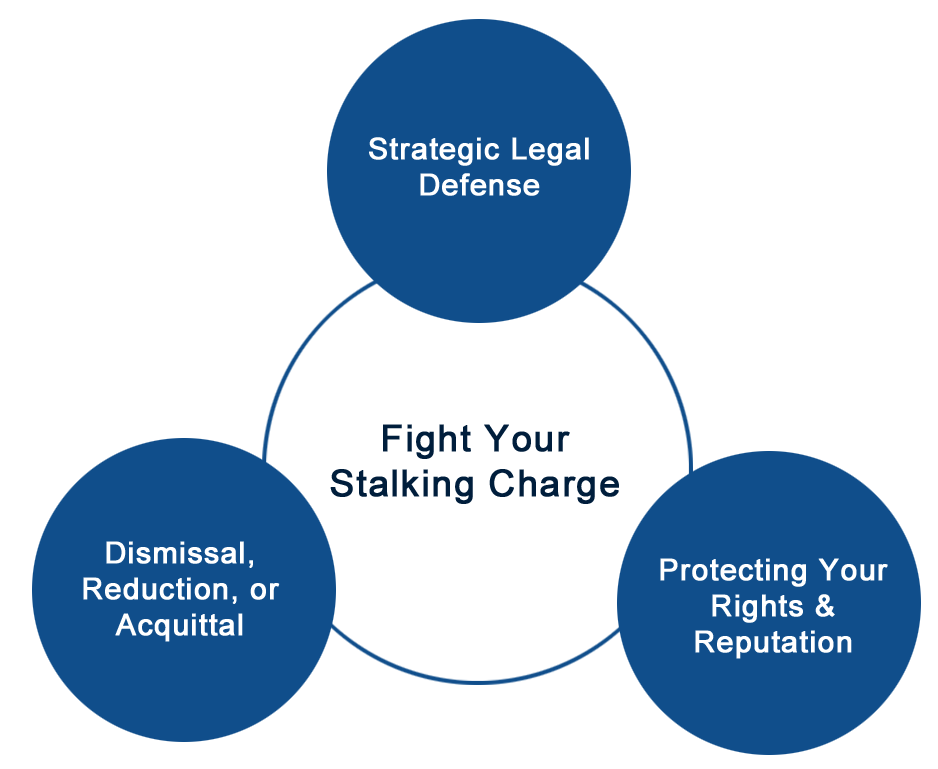What Counts as Stalking in Georgia?
When most people picture stalking, they imagine someone in a hoodie lurking outside an ex-partner’s home with binoculars in hand. But in real life, stalking often looks far less dramatic than what you see on TV. It might come in the form of repeated text messages, unannounced visits, or persistent social media tagging. Regardless of how it shows up, stalking is serious and can be criminal.
Under Georgia law, stalking is defined in O.C.G.A. § 16-5-90 as any contact that involves following or surveillance without the other person’s consent, with the intent to harass or intimidate. This includes both in-person and online behavior. The key factor is whether the conduct would cause a reasonable person to feel fear, emotional distress, or a loss of control over their own life.
Examples of stalking include:

- Following someone to their home, job, or favorite spots, even after being asked to stop
- Repeatedly texting or calling someone after being told not to
- Spying on someone or tracking their location using GPS
- Cyberbullying, including repeated messages or comments meant to intimidate, threaten, or distress
- Tagging someone online after they’ve blocked or unfriended the person
How Does the Law Define Stalking?
Georgia law defines stalking as a three-part issue:
- A behavioral pattern (not just a one-time incident)
- Intended to bother, threaten, or harass
- Causing the other person to feel unsafe or fear for their family’s safety
Intent doesn’t have to be proven. If the accused person’s actions made someone fear for their safety, it may be a crime.
Georgia Stalking Statute Explained
Under Georgia Code § 16-5-90, stalking is defined as intentionally and repeatedly harassing or intimidating someone in a way that makes them fear for their safety — especially if they’ve already asked the person to stop. The key factors are that the behavior is deliberate, repetitive, and frightening.
Getting Convicted of Stalking in Georgia
To convict someone of stalking under Georgia law, prosecutors must prove:
- Malicious Intent – The accused intended to scare or intimidate, with no logical reason for the behavior
- Behavioral Pattern – The conduct was ongoing or repeated, not a one-time event
- Lack of Consent – The accuser clearly did not want contact and the accused knew or should have known
- Emotional Distress – The accuser was left feeling unsafe or upset
All four elements must be met for a conviction.
Consequences of Stalking in Georgia
Stalking charges carry serious consequences. Even a first offense can have lasting effects.
- First offense – Typically a misdemeanor
- Second offense (aggravated stalking) – A felony with enhanced penalties

Legal and Court-Ordered Penalties May Include:
- Jail or Prison Time
– Misdemeanor: Up to 12 months in jail
– Felony: 1 to 10 years in prison - Fines
– Misdemeanor: Up to $1,000 plus court fees
– Felony: Significantly higher potential fines - Probation
– May include drug testing, check-ins, and restrictions - Restraining or Protective Orders
– May restrict access to the victim’s home, work, or school - Mandatory Community Service
– Often 20 to 100+ hours - Anger Management or Counseling
– May include therapy, domestic violence classes, or psychological evaluations - Permanent Criminal Record
– A felony conviction can affect jobs, housing, and custody| - No Contact Orders
– Prohibits direct or indirect contact with the victim - Loss of Gun Rights
– Felons cannot legally own or carry firearms - Impact on Child Custody
– May result in limited visitation or loss of custody
Alternatives to Jail & Conviction
Georgia law provides alternatives to a conviction, especially for first-time offenders.
- Pretrial Diversion Program
– What it is: An agreement that allows the case to be dismissed upon completion of specific requirements.
– How it works: The accused completes community service, counseling, and avoids contact with the alleged victim. If successful, the case is dismissed.
– Who qualifies: First-time, non-violent offenders - First Offender Act (Georgia Code § 42-8-60)
– What it is: A sentencing option that allows eligible first-time offenders to avoid a permanent conviction.
– How it works:- The defendant pleads guilty
- Sentence is imposed
- Upon successful completion, the case is sealed

Who Qualifies:
– No prior felony convictions
– Cannot have used the First Offender Act previously
– Not available for certain serious crimes
Good to Know:
– Requires judge approval
– Prosecutors may object
– Violating the terms can void the First Offender status
How to Defend Stalking Charges in Georgia and Avoid Conviction
A stalking charge doesn’t always lead to a conviction. Every case is unique, and experienced attorneys at Zeliff | Watson know how to craft a powerful defense.
Common Defense Strategies Include:
- No Intent to Harass or Intimidate – The behavior was misinterpreted
- Legitimate Purpose – The contact served a valid reason (e.g., shared child custody)
- No Pattern – A single incident typically doesn’t meet the threshold for stalking
- Lack of Clear Objection – If the accuser didn’t explicitly say to stop, intent may be harder to prove
- False Allegations or Motive – The accuser may be lying to gain an advantage
- Insufficient Evidence – The prosecution may not meet the burden of proof
- Alibi or Mistaken Identity – The accused wasn’t the person responsible
- Court-Ordered Contact – The actions were part of a legal order
- Protected Speech or Public Space Defense – Actions occurred in a public space or involved protected communication
- Ongoing Mutual Contact – If the accuser also continues contact, it weakens the claim
Example Stalking Case Wins
Case Dismissed: Neighbor Dispute Proven False
Pam was accused of stalking a neighbor after a heated dispute. Attorneys presented evidence that the accuser sent threatening messages herself.
Outcome: Charges dismissed.
Case Dismissed: Teen Accused by Girlfriend’s Parents
A teenager was charged after the girlfriend’s parents claimed harassment. The legal team demonstrated that the relationship and contact were mutual.
Outcome: Charges dismissed.
FAQs
How is stalking defined in Georgia?
Repeated, unwanted contact intended to threaten, scare, or harass another person.
What counts as evidence of stalking?
Phone records, texts, emails, social media posts, witness statements, restraining orders, and location data.
What’s the difference between harassment and stalking?
Harassment is annoying behavior. Stalking involves repeated, fear-inducing conduct that crosses into criminal territory.

Can stalking charges be reduced?
Yes. With the right defense, charges may be reduced to a lesser offense like disorderly conduct or trespassing — especially for first-time offenders.
Get Stalking Charges Dismissed, Reduced, or Acquitted
Just because you were accused of a crime does not mean you’re guilty.
A stalking charge in Georgia can impact your freedom, reputation, and future. But it doesn’t have to define your life. The attorneys at Zeliff | Watson are committed to protecting your rights and building a strong, strategic defense. Every case is handled with discretion, precision, and determination.
Schedule a Free Case Evaluation
Use the form below to request a free, no-obligation consultation with a member of the Zeliff | Watson team.
A Simple Process to Getting Started

Schedule a Free Case Evaluation
Schedule a free, no-obligation, and confidential case consultation in person, online, or over the phone. This will help you understand how your case can be challenged, potentially leading to a reduction, dismissal, or acquittal of your charges. Click here to schedule your case evaluation.

Meet Our Defense Team and Conduct a Case Evaluation
During your free case evaluation, you’ll have the opportunity to ask questions, receive answers and legal guidance, and collaborate with our attorneys to better understand your side of the story, gather evidence, and devise a strategy to achieve the best possible outcome for your pending criminal charges.

Start Defending Your Case
After your free case evaluation, Zeliff & Watson will assist in preserving evidence and safeguarding your rights, ensuring your protection throughout the process. The defense team will also provide a proposed fee to represent your case, with the goal of achieving the best possible outcome.

